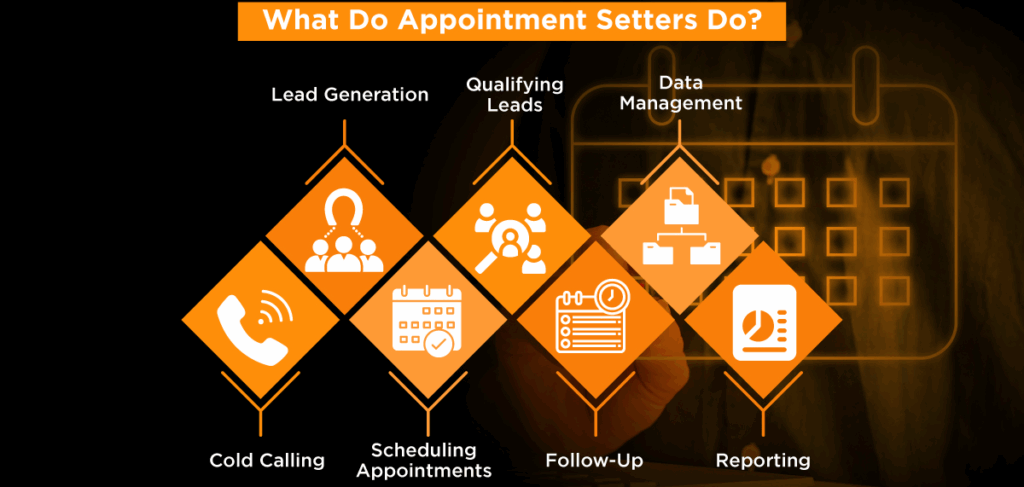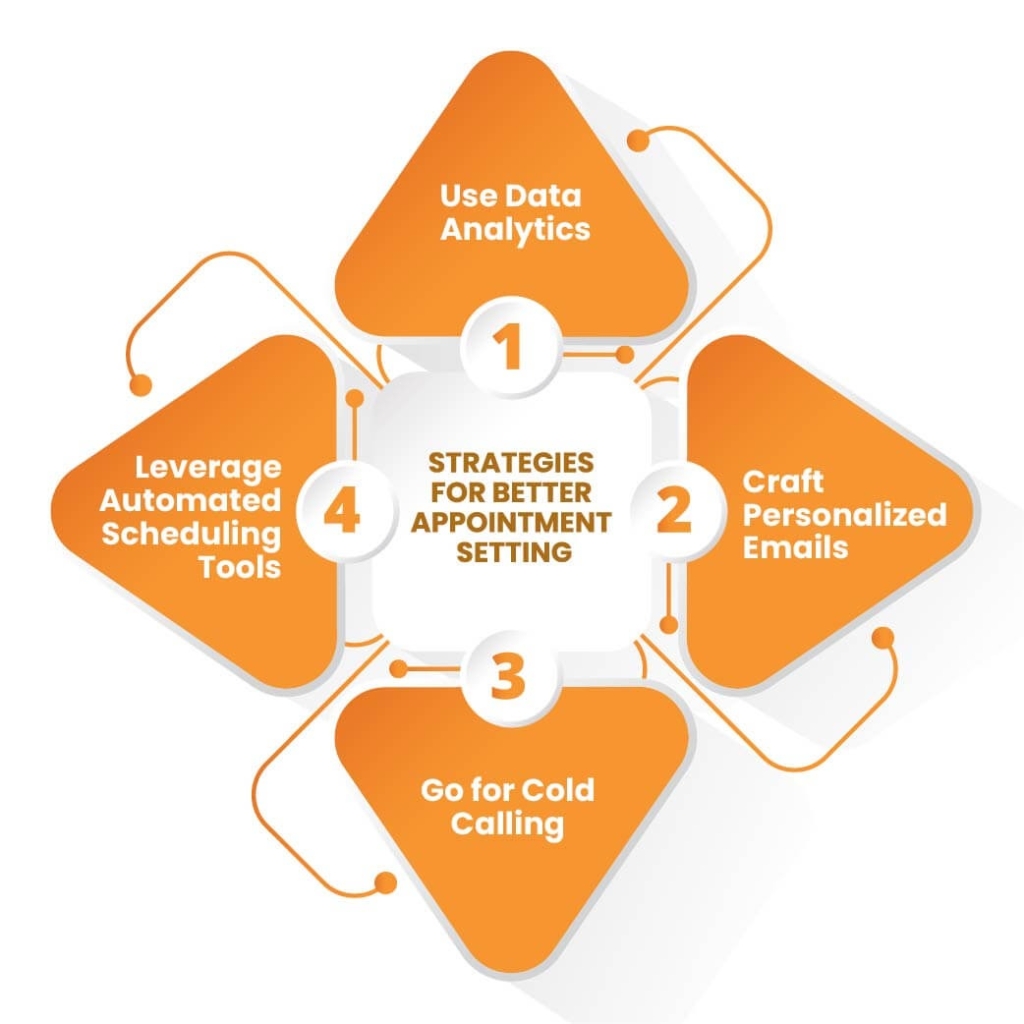CRO’s Guide to Evaluating B2B Appointment Setting Partners
Chief Revenue Officers are responsible for ensuring every sales activity contributes directly to predictable revenue growth. Appointment setting plays a critical role in that equation, but building the right team internally can strain resources. Many CROs partner with specialized providers to accelerate qualified pipeline creation while maintaining focus on core business strategy.
The challenge lies in finding a partner that delivers measurable performance, transparent data, and genuine alignment with organizational goals.
Quick Takeaways
- CROs must evaluate appointment setting partners based on alignment, transparency, and ROI.
- Data integration and performance reporting drive measurable outcomes.
- Industry expertise and scalability determine long-term partnership success.
- A structured vetting process reduces cost and risk while strengthening pipeline quality.
The CRO’s Perspective on Appointment Setting
A CRO’s primary objective is sustainable revenue growth. Every outsourced partnership must tie directly to performance outcomes such as increased conversion rates, shortened sales cycles, and higher deal velocity.
When selecting an appointment setting partner, CROs should evaluate how the firm complements their sales infrastructure, leverages technology, and aligns with internal go-to-market strategy.

Criteria for Selecting the Right Partner
1. Strategic Alignment with Sales Goals
A successful appointment setting partner functions as an extension of your sales organization. The provider should understand your ideal customer profile, sales motion, and key performance targets.
Before signing an agreement, CROs should:
- Review how the firm defines a qualified lead.
- Assess whether their messaging aligns with your brand positioning.
- Confirm that the team uses your CRM or integrates with it securely.
Alignment ensures each scheduled meeting fits within your existing pipeline framework and supports revenue goals.
2. Industry Experience and Specialization
Experience within your market is critical. A partner with B2B sales expertise understands decision-making hierarchies, technical buying processes, and multi-stakeholder engagement.
CROs should request:
- Client success stories or performance metrics from similar industries.
- Insight into how the firm trains its representatives for specific verticals.
- Proof of familiarity with target buyer personas and competitive landscapes.
This evaluation helps determine whether the partner can adapt to your organization’s selling environment.
3. Transparent Reporting and Metrics
Visibility into performance is non-negotiable. CROs need real-time reporting on outreach activity, meeting quality, and conversion ratios.
A strong partner provides:
- Weekly or monthly performance summaries.
- CRM integration that tracks meetings through to closed deals.
- Access to raw data for independent validation.
Transparent reporting helps CROs identify which campaigns generate the highest ROI and informs future strategy decisions.
Technology and Integration Capabilities
Technology directly influences appointment setting efficiency. CROs should confirm that potential partners use tools compatible with internal systems for lead tracking, pipeline visibility, and data synchronization.
Key Integration Questions
- Does the partner integrate directly with your CRM, marketing automation, or sales enablement platforms?
- How are data accuracy and duplicate prevention managed?
- Can the partner provide analytics dashboards customized for your KPIs?

These considerations ensure smooth collaboration between internal sales operations and the outsourced team.
Data Security and Compliance
Since appointment setting involves sharing contact and customer information, compliance with data protection laws such as GDPR and CCPA is essential. The partner should maintain secure storage protocols, conduct regular audits, and train staff on privacy requirements.
Strong data governance protects your organization’s reputation and ensures long-term operational integrity.
Measuring Partner Performance
Once a partnership begins, CROs should establish measurable expectations.
Performance Metrics to Track
- Meeting-to-opportunity ratio: Indicates how often appointments convert into qualified opportunities.
- Average deal size influenced: Helps gauge revenue impact from outsourced efforts.
- Sales cycle duration: Measures whether the partner contributes to faster conversions.
- Pipeline contribution: Tracks percentage of revenue linked to partner-sourced meetings.
Evaluating these metrics consistently gives CROs a clear view of ROI and ensures accountability.
Quality Control
Quantity alone is not enough. CROs must ensure the partner focuses on lead quality and brand representation. Regular call recordings, feedback sessions, and shared pipeline reviews maintain consistency and trust.
Partners that value feedback and refine their outreach based on performance data will deliver stronger long-term results.
Collaboration and Communication Practices
A reliable appointment setting partner maintains open communication and aligns reporting cycles with your internal cadence. Weekly updates, shared dashboards, and quarterly business reviews help sustain transparency.
Questions to Ask Before Signing
- How often will performance reviews take place?
- Who is the main point of contact or account manager?
- What is the escalation process if performance issues arise?
Defining these expectations at the start prevents misalignment later.
Cost Considerations and ROI Evaluation
CROs should analyze total cost against expected revenue outcomes. Pricing models may vary (pay-per-meeting, monthly retainers, etc.) so it’s essential to compare projected pipeline value with total expenditure.
(Revenue Generated from Partner – Total Cost of Partnership) / Total Cost × 100
The best appointment setting partners can demonstrate tangible revenue impact within a few sales cycles. Transparent cost structures, combined with clear ROI tracking, make it easier to evaluate long-term partnership value.
Scalability and Growth Potential
As sales objectives evolve, the appointment setting firm should scale alongside your organization. A partner that can quickly increase resources, enter new regions, or support product expansions offers strategic flexibility.
Ask whether the firm can provide dedicated teams for enterprise versus mid-market segments and if they can pivot to support additional verticals when growth requires. Scalability ensures your investment continues to deliver value as business priorities shift.
Build a Partnership That Drives Growth Today with Televerde
For CROs, the right appointment setting partner is more than a vendor—it is a revenue accelerator. Success depends on shared goals, transparent communication, and measurable results.
By prioritizing alignment, data visibility, and performance accountability, CROs can ensure their partnerships deliver consistent value and strengthen the organization’s entire revenue engine. The result is a predictable, scalable sales pipeline supported by a trusted partner committed to measurable growth.
Ready to enhance your sales pipeline with a proven appointment setting partner? Discover how Televerde helps CROs achieve measurable results through data-driven outreach and strategic collaboration. Contact us to learn more.

